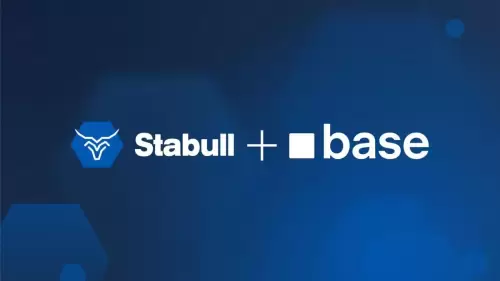 |
|
 |
|
 |
|
 |
|
 |
|
 |
|
 |
|
 |
|
 |
|
 |
|
 |
|
 |
|
 |
|
 |
|
 |
|
특히 인공 지능 (AI) 및 기계 학습 (ML)에서 기술 혁신의 빠른 진화는 수많은 부문을 재구성하고 있습니다.

The rapid evolution of technological innovation, particularly in artificial intelligence (AI) and machine learning (ML), is transforming numerous sectors at an unprecedented pace. These advancements are critically dependent on the availability and quality of data, as higher-quality data lead to more significant insights and outcomes. Among various data types, biometric data stand out for their depth and potential utility, ranging from daily health indicators to complex genomic profiles1. This vast array of data enables a sophisticated understanding of health and lifestyle patterns, enhancing predictive models for pharmacological interventions and physiological simulations conducted *in silico2.
기술 혁신의 빠른 진화, 특히 인공 지능 (AI) 및 기계 학습 (ML)에서 수많은 부문을 전례없는 속도로 변화시키고 있습니다. 이러한 발전은 고품질 데이터가보다 중요한 통찰력과 결과로 이어 지므로 데이터의 가용성과 품질에 크게 의존합니다. 다양한 데이터 유형 중에서 생체 인식 데이터는 일일 건강 지표에서 복잡한 게놈 프로파일에 이르기까지 깊이와 잠재적 유용성에 대해 두드러집니다 1. 이 방대한 데이터 배열은 건강 및 라이프 스타일 패턴에 대한 정교한 이해를 가능하게하여 Silico2에서 수행 된 약리학 적 개입 및 생리 학적 시뮬레이션에 대한 예측 모델을 향상시킵니다.
However, the accumulation and management of such sensitive biometric data pose significant ethical and governance challenges, particularly regarding ownership rights, which are rarely conferred upon the data creators. This misalignment between data generation and proprietary rights raises serious concerns about privacy, control, and the equitable use of personal information3. Traditional methods—such as encryption4, secure hardware5, anonymization6, and zero-knowledge proofs (ZKPs)7—ensure privacy and security, but they primarily focus on access control rather than decentralized ownership or monetization. While ZKPs support privacy-preserving authentication, they are computationally intensive and lack data portability. Privacy-focused databases ensure regulatory compliance but depend on centralized trust, limiting user autonomy. In contrast, NFTs offer a decentralized framework enabling verifiable ownership, secure transactions, and traceability. When combined with advanced cryptographic methods, NFTs present a scalable and privacy-enhancing solution for sensitive data management.
그러나 이러한 민감한 생체 인식 데이터의 축적 및 관리는 특히 데이터 제작자에게 거의 부여되지 않는 소유권에 관한 상당한 윤리 및 거버넌스 문제를 제기합니다. 데이터 생성과 독점적 권리 사이의 이러한 오정렬은 개인 정보 보호, 통제 및 개인 정보의 공평한 사용에 대한 심각한 우려를 제기합니다 3. 전통적인 방법-Encryption4, Secure Hardware5, Anonymization6 및 Zero-Knowledge Proofs (ZKP) 7 등의 전통적인 방법은 개인 정보 및 보안을 확보하지만 주로 분산 된 소유권 또는 수익 창출보다는 액세스 제어에 중점을 둡니다. ZKP는 개인 정보 보호 예방 인증 인증을 지원하지만 계산 집중적이며 데이터 이식성이 부족합니다. 개인 정보 보호 데이터베이스는 규제 준수를 보장하지만 중앙 집중식 신뢰에 의존하여 사용자 자율성을 제한합니다. 대조적으로, NFT는 검증 가능한 소유권, 안전한 거래 및 추적 성을 가능하게하는 분산 된 프레임 워크를 제공합니다. 고급 암호화 방법과 결합하면 NFT는 민감한 데이터 관리를위한 확장 가능하고 개인 정보 보호 솔루션을 제공합니다.
Non-fungible tokens (NFTs) have emerged as a transformative solution to these challenges. NFTs are unique digital tokens powered by blockchain technology, presenting scarce digital assets with distinct value within a blockchain network. While previous studies have explored the integration of biometric data with NFTs2,8,9,10, they have remained largely conceptual, focusing on theoretical discussions. In contrast, the objective of this study is to develop a secure and decentralized framework—Cell-NFT—for the ownership, management, and application of biometric data using NFT technology.
번창 할 수없는 토큰 (NFT)은 이러한 도전에 대한 변형 솔루션으로 등장했습니다. NFT는 블록 체인 기술로 구동되는 독특한 디지털 토큰으로 블록 체인 네트워크 내에서 부족한 디지털 자산을 제공합니다. 이전의 연구는 NFTS2,8,9,10과 생체 인식 데이터의 통합을 탐구했지만, 이론적 토론에 중점을두고 크게 개념적으로 남아 있습니다. 대조적으로,이 연구의 목적은 NFT 기술을 사용한 생체 인식 데이터의 소유권, 관리 및 적용을위한 안전하고 분산 된 프레임 워크 (Cell-NFT)를 개발하는 것입니다.
Unlike prior research in domains like the Internet of Vehicles (IoV)11,12, the Cell-NFT framework introduces innovations tailored for healthcare. These innovations include standardized data management, robust ownership mechanisms, and cryptographic privacy-enhancing techniques, ensuring compliance with data protection regulations in healthcare and biotechnology.
Cell-NFT 프레임 워크는 차량 인터넷 (IOV) 11,12와 같은 도메인의 사전 연구와 달리 의료용 혁신을 소개합니다. 이러한 혁신에는 표준화 된 데이터 관리, 강력한 소유권 메커니즘 및 암호화 개인 정보 강화 기술이 포함되어 의료 및 생명 공학의 데이터 보호 규정 준수를 보장합니다.
Traditional database systems, despite their efficiency in storing and retrieving data, rely on centralized control for access management and data integrity. This centralized approach carries risks such as unauthorized modifications, lack of transparency, and dependence on intermediaries for trust. Conversely, blockchain technology provides a decentralized solution, where data integrity is cryptographically verifiable, and records are tamper-proof. By integrating these features, the Cell-NFT framework ensures that biometric data ownership and transactions are transparent, auditable, and invulnerable to manipulation.
기존 데이터베이스 시스템은 데이터 저장 및 검색 효율성에도 불구하고 액세스 관리 및 데이터 무결성을 위해 중앙 집중식 제어에 의존합니다. 이 중앙 집중식 접근법은 무단 수정, 투명성 부족 및 신뢰를위한 중개자에 대한 의존성과 같은 위험을 전달합니다. 반대로, 블록 체인 기술은 데이터 무결성이 암호화 적으로 검증 가능하며 레코드가 변조 방지되는 분산 솔루션을 제공합니다. 이러한 기능을 통합함으로써 Cell-NFT 프레임 워크는 생체 인식 데이터 소유권 및 트랜잭션이 투명하고 감사하며 조작 할 수 없도록합니다.
The metadata schema for Cell-NFTs is not merely a replication of traditional database functions but is designed to capitalize on blockchain’s unique advantages in data security and provenance tracking. Unlike conventional databases, where data integrity relies on a central authority, blockchain-based metadata guarantees tamper-proof records, cryptographically verifiable ownership, and decentralized access control. This approach is crucial in biomedical applications, demanding regulatory compliance, transparency, and auditability. Traditional databases are susceptible to unauthorized modifications and necessitate significant trust in intermediaries, whereas blockchain mitigates these concerns by providing a transparent and immutable ledger of all recorded interactions. Through the integration of these features, our approach achieves substantial improvements in data integrity, security, and long-term reliability compared to conventional storage solutions.
Cell-NFTS의 메타 데이터 스키마는 기존 데이터베이스 기능의 복제 일뿐 만 아니라 데이터 보안 및 출처 추적에서 블록 체인의 고유 한 장점을 활용하도록 설계되었습니다. 데이터 무결성이 중앙 기관에 의존하는 기존 데이터베이스와 달리 블록 체인 기반 메타 데이터는 변조 방지 레코드, 암호화 적으로 검증 가능한 소유권 및 분산 액세스 제어를 보장합니다. 이 접근법은 규제 준수, 투명성 및 감사를 요구하는 생의학 응용 분야에서 중요합니다. 전통적인 데이터베이스는 무단 수정에 취약하고 중개자에 대한 상당한 신뢰를 필요로하는 반면, 블록 체인은 기록 된 모든 상호 작용의 투명하고 불변의 원장을 제공함으로써 이러한 우려를 완화시킵니다. 이러한 기능의 통합을 통해 우리의 접근 방식은 기존의 스토리지 솔루션과 비교하여 데이터 무결성, 보안 및 장기 신뢰성의 상당한 개선을 달성합니다.
Our research presents a pioneering methodology that integrates biometric data into NFTs to establish robust ownership records. Tokenizing biometric information preserves individual uniqueness and represents biological identity within the digital sphere, facilitating the secure certification of data ownership. Biometric NFTs, encompassing comprehensive digital life data, enable their governance and exchange across diverse digital platforms and marketplaces. The accompanying metadata schema is designed to boost both accessibility and practical use by streamlining data sharing and transactions, enhancing management workflows and reinforcing the foundation of a secure and efficient digital health infrastructure.
우리의 연구는 생체 인식 데이터를 NFT에 통합하여 강력한 소유권 기록을 설정하는 선구적인 방법론을 제시합니다. 생체 인식 정보 토큰 화는 개별 고유성을 보존하고 디지털 구체 내에서 생물학적 정체성을 나타내며, 데이터 소유권의 안전한 인증을 촉진합니다. 포괄적 인 디지털 라이프 데이터를 포함하는 생체 인식 NFT는 다양한 디지털 플랫폼과 마켓 플레이스에서 거버넌스 및 교환을 가능하게합니다. 수반되는 메타 데이터 스키마는 데이터 공유 및 트랜잭션을 간소화하고 관리 워크 플로우를 향상시키고 안전하고 효율적인 디지털 건강 인프라의 기초를 강화하여 접근성과 실제 사용을 향상 시키도록 설계되었습니다.
Tokenized biometric data have diverse applications, including use by hospitals and pharmaceutical companies. To address limitations in current NFT-based healthcare and biotechnology solutions, our framework employs a metadata schema and ecosystem designed for optimal data security, efficient processes, and improved accessibility. This tokenization introduces societal benefits, such as improved data management security and the emergence of new industries focused on innovative digital assets. Moreover, the work underscores the concept of individuality in the digital age, presenting both challenges and opportunities at the intersection of human behavior, ethics, and societal norms.
토큰 화 된 생체 인식 데이터에는 병원 및 제약 회사의 사용을 포함한 다양한 응용 프로그램이 있습니다. 현재 NFT 기반 의료 및 생명 공학 솔루션의 한계를 해결하기 위해 Framework는 최적의 데이터 보안, 효율적인 프로세스 및 개선 된 접근성을 위해 설계된 메타 데이터 스키마 및 생태계를 사용합니다. 이 토큰 화는 개선 된 데이터 관리 보안 및 혁신적인 디지털 자산에 중점을 둔 새로운 산업의 출현과 같은 사회적 이점을 도입합니다. 더욱이이 연구는 디지털 시대의 개성 개념을 강조하여 인간 행동, 윤리 및 사회적 규범의 교차점에서 도전과 기회를 제시합니다.
부인 성명:info@kdj.com
제공된 정보는 거래 조언이 아닙니다. kdj.com은 이 기사에 제공된 정보를 기반으로 이루어진 투자에 대해 어떠한 책임도 지지 않습니다. 암호화폐는 변동성이 매우 높으므로 철저한 조사 후 신중하게 투자하는 것이 좋습니다!
본 웹사이트에 사용된 내용이 귀하의 저작권을 침해한다고 판단되는 경우, 즉시 당사(info@kdj.com)로 연락주시면 즉시 삭제하도록 하겠습니다.






























































